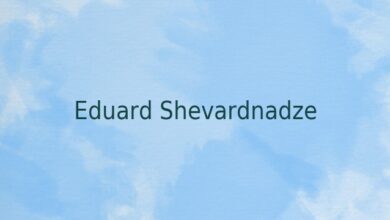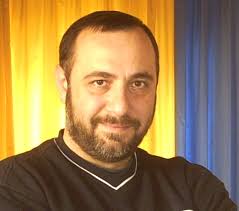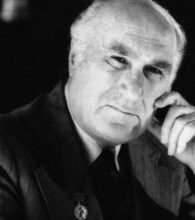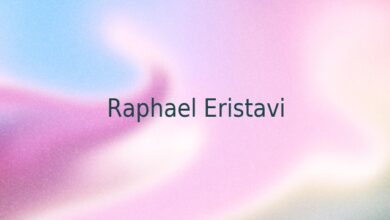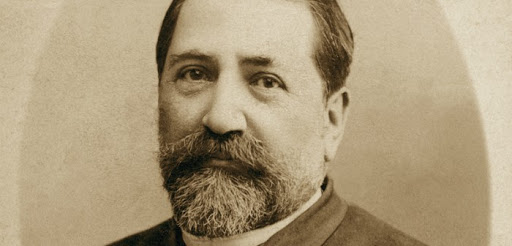
Ilia Chavchavadze
Prince Ilia Chavchavadze (October 27, 1837 – August 30, 1907) was a Georgian writer, poet, journalist and lawyer who spearheaded the revival of Georgian national movement in the second half of the 19th century, during the Russian rule of Georgia. Today he is widely regarded as one of the founding fathers of modern Georgia. He was canonized as Saint Ilia the Righteous by the Georgian Orthodox Church. The Georgian people revere Chavchavadze as Pater Patriae (Father of the Fatherland) of Georgia.
Inspired by liberal movements of Europe of his age, as a writer and a public figure Ilia Chavchavadze directed much of his efforts to awakening national ideals in Georgians and building up a firm society in his homeland.
Chavchavadze was born in 1837, in Kvareli, Eastern Georgia, to a noble Chavchavadze family. In 1857 he graduated from the 1st Classical Gymnasium of Tbilisi. In 1861 he graduated from the Faculty of Law of the St. Petersburg University.
His most important literary works works are: The Hermit, The Ghost, Is a human a man?!, Otaraant Widow, Kako The Robber. He was an editor-in-chief of Georgian periodicals “Sakartvelos Moambe” (1863-1877) and “Iveria” (1877-1905), and authored numerous journalistic articles. Most of his work deal with Georgia and the Georgians. He stood as a devoted defender of Georgian language and culture from Russification.
Chavchavadze was killed by a gang of assassins in Tsitsamuri, outside Mtskheta. His legacy earned him a broad admiration among the Georgians.
Ancestry and early life
Ilia Chavchavadze was born in Kvareli, a village located in the Alazani Valley, Kakheti province of Georgia, which was part of the Russian Empire during that time. Ilia was a tavadi, a Georgian noble title of prince. Supposedly, the noble last name of Chavchavadze came from Pshav-Khevsureti region of Georgia and in 1726, King Constantine I granted Chavchavadze family the status of the Princes on account of their knighthood and valor to the nation. This has resulted in their migration and re-settlement in the Alazani Gorge, Kakheti. According to King Erekle II’s order Ilia’s great grandfather, Bespaz Chavchavadze was awarded knighthood when he defeated twenty thousand Persian invaders in Kvareli in 1755.
Ilia was a third son of Grigol Chavchavadze and Mariam Beburishvili. Grigol, like his father and his famous ancestors had a military background. He with the local militiamen protected the village from numerous Dagestani invasions. This, in fact, can be seen from the architecture of Ilia Chavchavadze’s museum house in Kvareli, incorporating Medieval castle style in the two storey castle in the yard, which was designed to protect the house during the invasions.
Ilia’s mother Mariam died on May 4, 1848, when Ilia was ten years old, and his father asked his sister Makrine for assistance in bringing up the children. aunt Makrine had a significant impact on Ilia’s life, because after 1852, when Ilia’s father Grigol died, she was the only caretaker of the family.
Chachavadze was educated at the elementary level by the deacon of the village before he moved to Tbilisi where he attended the prestigious Gymnasium for Nobility in Tbilisi in 1848. However, since an early age Ilia was influenced by his parents who were highly educated in classical literature, Georgian history and poetry. The inspiring stories of Georgian heroism in the classical historic novels was exposed to Ilia through his parents. In his autobiography, Ilia mentioned his mother Princess Mariam Chavchavadze who knew most of the Georgian novels and poems by heart and encouraged her children to study them. Ilia also mentioned about the influence made by the deacon’s story telling which gave him an artistic inspiration, later applied during the composition of his novels. In 1848, after the death of Princess Chavchavadze, Ilia was sent to Tbilisi by his father to start the secondary education. At first, Ilia attended a private school for three years before he entered the 1st Gymnasium of Tbilisi in 1851. Soon after, Ilia’s father died and the aunt Makrine took all the responsibility of the family. His secondary school years were very stressful for Ilia, due of his father death. However, the Chavchavadze family suffered another devastating blow when the Ilia’s brother Constantine was killed during the Dagestani raid on Kakheti. Ilia expressed his stress and grieve in one of his first short-poems called Sorrow of a Poor. In addition to the personal problems, the political situation was worsening in Georgia under the harsh authority of the Russian Empire which has played a destructive role for nation and its culture.
Student years
After graduating from the Gymnasium, Ilia decided to acquire a higher education in the University of St. Petersburg, Russia. Before leaving for St. Petersburg, Ilia composed one of his most remarkable poems, To Mountains of Kvareli in the village of Kardanakhi on April 15 of 1857, where he expresses his admiration to the Greater Caucasus Mountains since his childhood and his sorrows for leaving the homeland.
The same year Ilia was admitted to the University of St.Petersburg. During his student years at St Pitersburg, numerous revolutions sprung up in Europe which Ilia observed with great interest. Ilia attention focused on the events in Italy and the struggle of Giuseppe Garibaldi whom he admired for many years. While in St.Petersburg, Ilia met with Princess Catherine Chavchavadze, from whom he learned about the poetry and lyrics of the Georgian romantic Prince Nikoloz Baratashvili. Due to the harsh climate in St Pitersburg, Ilia became very ill and returned to Georgia for several month in 1859.
Ilia finally returned to Georgia after the complition of his studies at St Pitersburg in 1861. While on his journey back home , Ilia wrote one of his greatest masterpieces The Travelers’ Diaries, where he outline the importance of the nation-building and provided an allegorical comparison of Mt. Kazbegi and the Tergi River in the Khevi region of Georgia.
Political life
Newspaper “Iveria” (Iberia) founded and edited by Chavchadze during his political career. The Newspaper focused on national-liberation movement of Georgia in late 1800s.
Ilia’s main political and social aims were embodied in Georgian patriotism. He radically advocated the revival of the use of the Georgian language, the cultivation of Georgian literature, supporting the revival of autocephalous status for Georgian national church and finally the revival of Georgian statehood, which had ended when the country became part of the Russian Empire. As supporters of his ideas grew, so did the opposition among the leading Social-Democrats and Bolsheviks like Noe Zhordania. Their main aims were concentrated in battling Tsarist autocracy and implementing Marxist ideology all over the Russian empire. This did not include the national revival of the Georgian state and of Georgian self-identity. Ilia was viewed as bourgeois and as an old aristocrat who failed to realize the importance of the revolutionary tide.
In addition to his works described above he was also the founder and chairman of many public, cultural and educational organizations (“The Society on the Dissemination of Literacy Among Georgians”, “The Bank of the Nobility”, “The Dramatic Society”, “The Historical-Ethnographical Society of Georgia”, etc.). He was also a translator of British literature. His main literary works were translated and published in French, English, German, Polish, Ukrainian, Belarusian, Russian and other languages. From 1906 to 1907 he was a member of the State Council (Gosudarstvennaya Duma) of the Russian Empire. His eclectic interests also led him to be a member of the Caucasian Committee of the Geographical Society of Russia, the Society of Ethnography and Anthropology of the Moscow University, the Society of Orientalists of Russia, the Anglo-Russian Literary Society (London), etc.
Assassination of Ilia
After being a member of the Upper House in the first Russian Duma, Ilia decided to return to Georgia in 1907. On August 28, 1907 Ilia Chavchavadze was murdered by the gang of six assassins who ambushed him and his wife Olga while traveling from Tbilisi to Saguramo, near Mtskheta. The assassination of Ilia Chavchavadze remains controversial. Based on recent discoveries in archives and documents, the plot to assassinate Ilia was masterminded by the co-operation between Social-Democrats and the Bolsheviks due to Ilia’s condemnation of their revolutionary ways and his tremendous popularity and trust among the people. During World War II, an old man confessed of being hired by Russian gendarmerie to assassinate Ilia.
During the Soviet period, an investigation was launched by the Soviet authorities which later came to the conclusion that the Tsarist secret police and administration had been involved in the assassination. Either way, the assassination of Ilia became a wide-scale national tragedy which was mourned by the entire country and by Georgian society. Prince Akaki Tsereteli, who had serious health problems, spoke at the funeral and dedicated an outstanding oration to Ilia: “Ilia’s inestimable contribution to the revival of the Georgian nation is an example for the future generations”.
In 1987, he was canonized by the Georgian Orthodox and Apostolic Church.
Legacy
As the result of Ilia’s death, Bolshevik terrorism was rising while Georgian Social-Democrats started to gain significant power and support among the population. Eventually, realizing their differences with the Bolsheviks, the Social-Democrats of Georgia decided to revive Georgian statehood and proclaimed the independence of Georgia on May 26, 1918. After the Bolshevik occupation of Georgia and her integration into Soviet Union, Ilia became a national symbol of Georgian freedom and national liberation. During the anti-Soviet protests in Tbilisi of 1989, poems, novels and the political life of Ilia Chavchavadze became a driving force behind the Georgian strive toward independence. National revival, which Ilia preached and advocated in various Georgian societies during his life, gained its momentum in 1990.


